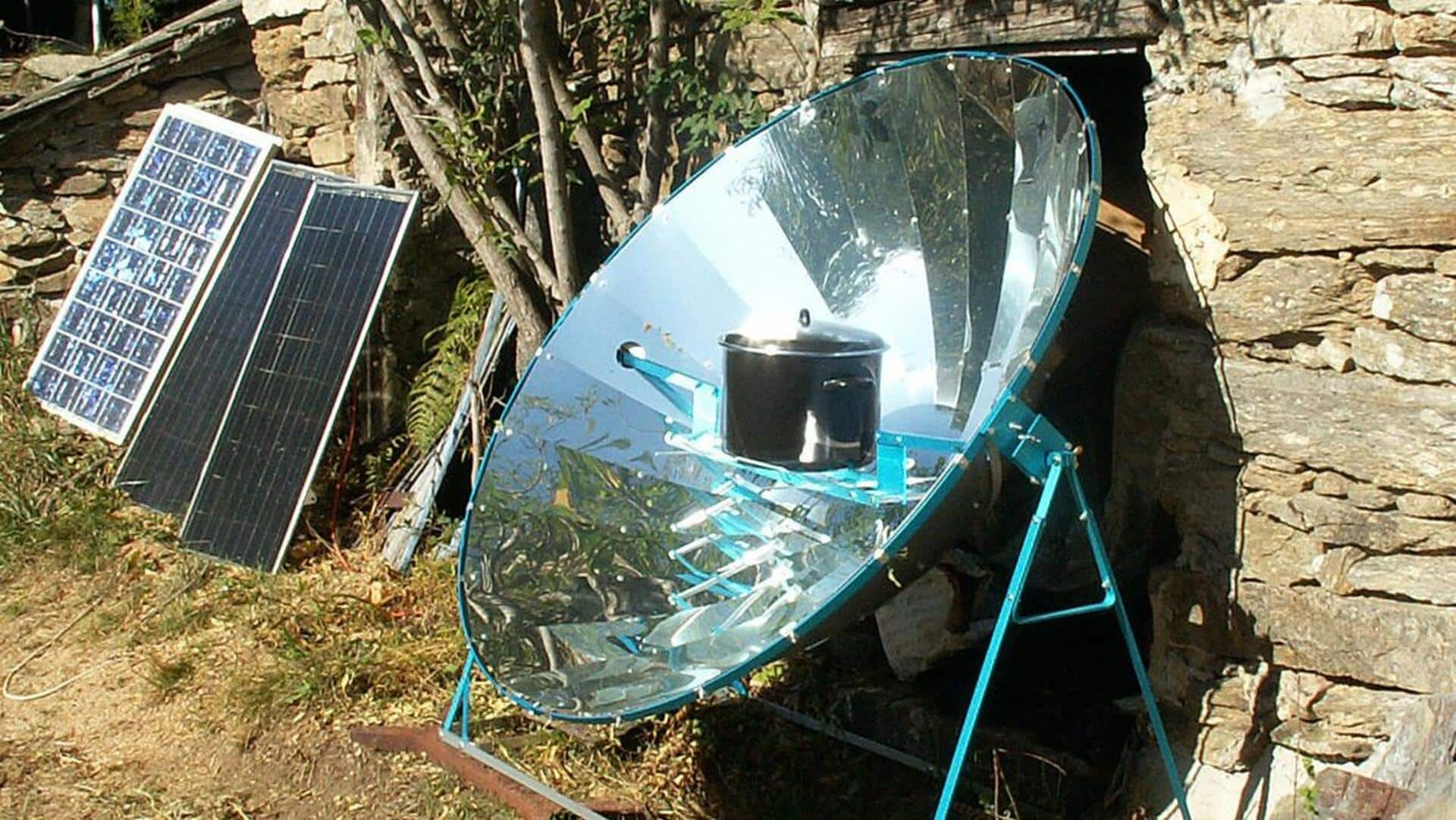
Solar cooking classes: Sustainable culinary skills
What's the story
Solar cooking classes empower participants with the knowledge and skills to utilize solar energy for food preparation, fostering a sense of environmental stewardship and promoting sustainable living.
By focusing on conservation and energy efficiency, solar cooking not only minimizes your carbon footprint but also supports healthier eating habits by emphasizing the use of fresh, locally sourced ingredients.
Basics
Embrace the sun's power
Solar cooking classes familiarize participants with various types of solar cookers, such as box, parabolic, and panel cookers.
Each type of cooker has distinct advantages depending on the specific cooking task.
Students learn how these cookers capture and convert sunlight into heat, allowing for cooking without the need for conventional fuels.
This part highlights that knowing how to harness the sun's energy is key to cooking food efficiently.
Recipes
Crafting your solar cuisine
A highlight of solar cooking classes is discovering the diverse range of recipes that can be prepared using solar cookers.
Instructors teach students how to create dishes ranging from simple snacks like roasted nuts to more complex meals like vegetable stews and baked goods.
The focus is on choosing ingredients that benefit from slow-cooking conditions, enhancing flavor while preserving nutritional value.
Techniques
Practical tips for efficient solar cooking
These classes teach tricks for harnessing the sun's power most effectively.
Techniques like positioning the cooker just right for peak sun-heat, preheating before you put your food in, and knowing how to adjust for cloudy days make all the difference.
Students are taught that patience is the key - solar cooking might be slow, but the reward is super tender, perfectly even cooking.
Impact
Sustainability beyond cooking
A key takeaway from solar cooking classes extends beyond the kitchen: the environmental benefit of embracing this green practice.
Teachers highlight that harnessing the sun's power for everyday tasks drastically reduces dependence on fossil fuels and decreases harmful greenhouse gas emissions.
Students are encouraged to think sustainably beyond the kitchen, adopting additional eco-friendly practices that amplify the positive impact of their newfound culinary skills.
Networking
Joining a community of solar chefs
Finally, these classes provide a community of like-minded individuals passionate about sustainability and innovative cooking methods.
Many courses facilitate this through online forums or group projects, allowing participants to share experiences, recipes, and tips long after the class concludes.
This sense of community fosters ongoing learning and support among enthusiasts striving to make a positive impact through their culinary choices.